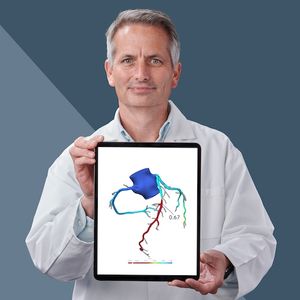
The HeartFlow Analysis has helped physicians at more than 400 hospitals and clinics worldwide to improve care for more than 170,000 patients with coronary artery disease. Learn why partnering with HeartFlow has helped their physicians, teams and programs succeed in our case studies below.
As an early adopter of the CT + HeartFlow pathway, the Cone Health cardiovascular program continues to demonstrate leadership in advancing the quality of heart and vascular care for patients. Hear key members of the Cone Health team discuss why they adopted the HeartFlow Analysis, the impact it’s had on patient care and key components of the program’s success in this case study.
This gave me a tool that I felt was more trustworthy and helped to get away from the high false positives we were getting with SPECT.

HeartFlow recognizes Portsmouth Hospitals University NHS Trust (PHU), which runs Queen Alexandra Hospital, for their continued partnership over the last three years and outstanding CT service to their population of nearly 2 million potential patients. To keep up with demand, the team re-imagined their processes, further integrating their cardiac radiographer to help streamline workflows, resulting in a reduction of wait times, increase of CT scan capacity and overall improved patient experience.
“This has overhauled the way we approach coronary heart disease within the Trust, minimising our use of invasive diagnostic techniques and developing a practice that maximises efficiency.”
— Dr. Peter Haworth | Consultant Interventional Cardiologist
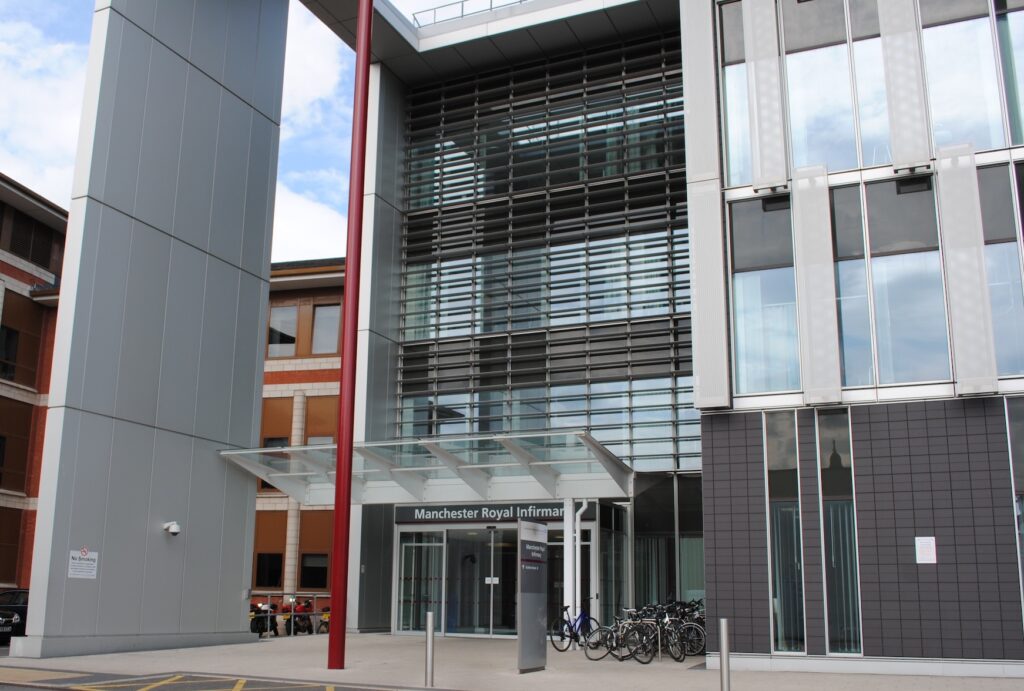
Learn how the Manchester University NHS Foundation Trust team adapted their CT protocols and day-to-day tasks to ensure continuity of care at the highest standards, even during the COVID pandemic. While the spectrum of patients with chest pain assessed by a CT-first strategy in accordance with the latest NICE guidelines has increased during the pandemic, this trend is likely to remain thanks to the support of the HeartFlow Analysis, which helps provide valuable physiologic information. Congrats to the team for their outstanding CT service and commitment to better patient care.
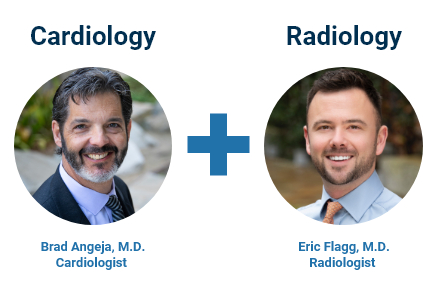
This case study highlights a Northern California based healthcare system, which includes more than 24 acute care hospitals and 200 clinics. Like many systems, optimal patient care is a priority; however, their approach is unique in its focus on an integrated, team-based approach bolstered by the adoption of innovative technologies.
CT with the HeartFlow Analysis brings the diagnosis into focus. I feel like I’m putting on glasses and seeing better, and it’s a great feeling.
— Brad Angeja, MD | Cardiologist”
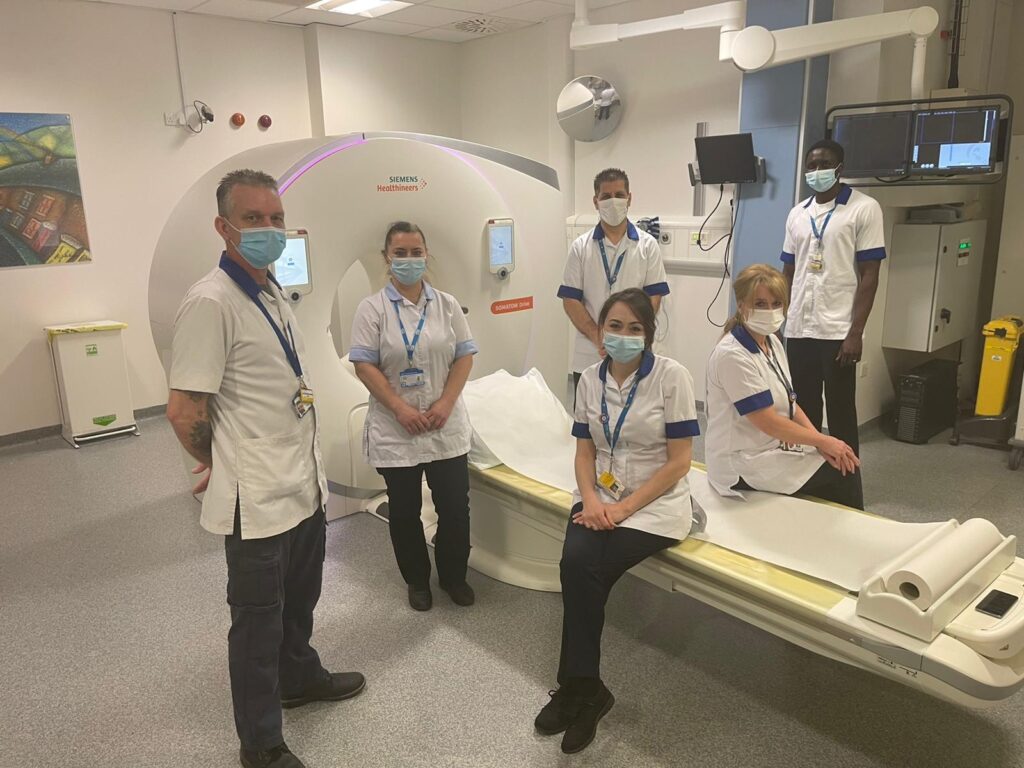
Royal Stoke University Hospital received the Outstanding CT Service Award for ensuring patients continue to access the best cardiac care throughout the COVID pandemic, even working numerous weekends to reduce patient waiting lists. Learn how the HeartFlow Analysis helped streamline their operations and also alleviate patient fears concerning cardiac testing in hospitals.
“As we restore our diagnostic services to pre-COVID levels and recover from long waiting lists, the HeartFlow Analysis has shown to be a very useful tool in reducing the number of diagnostic tests a patient needs, which in turn improves patient flow through the diagnostic pathways.”
— Dr. Samavia Raza | Consultant Cardiothoracic Radiologist, University Hospitals of North Midlands NHS Trust
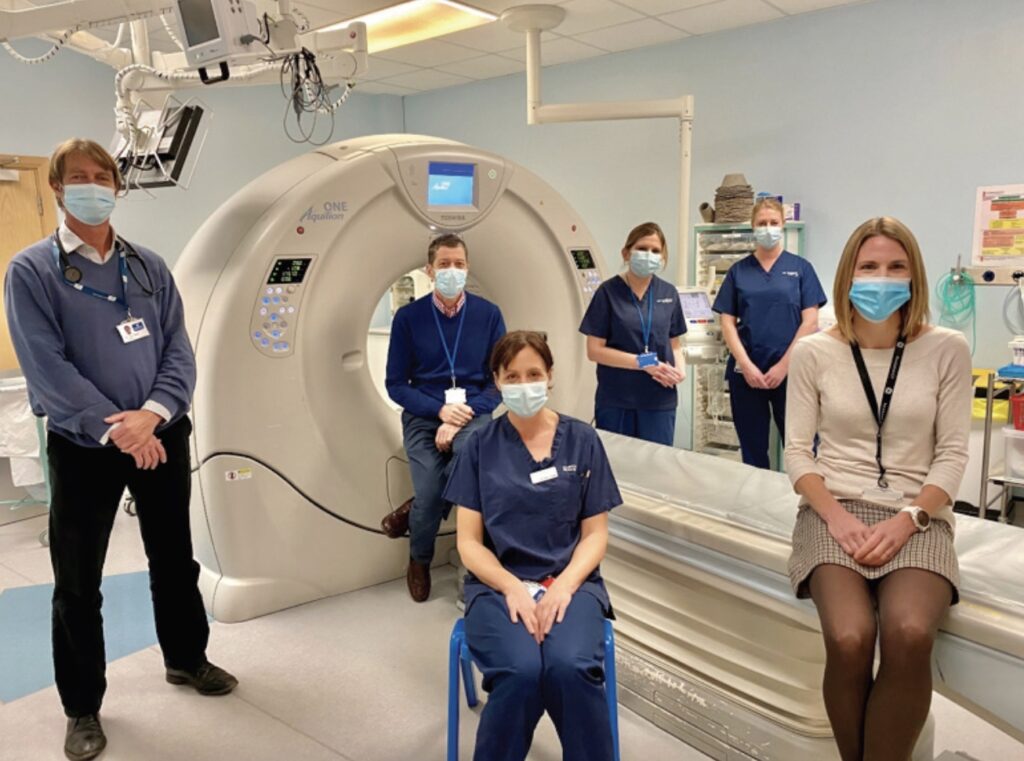
In 2019, the Royal Cornwall Hospitals experienced a surge in referrals for cardiac CT, as more centres across England adopted NICE’s CG95 CT-first guidelines. Learn what the team implemented to tackle incremental efficiencies to increase scanning and why the Royal Cornwall Hospitals NHS Trust won the Outstanding Cardiac CT Service award from HeartFlow in 2020.
“The demand for cardiac CT examinations has increased 3-fold in the last couple of years following emerging evidence and national guidance . . . their (CT Radiographers) contribution has been outstanding and sets standards for other centres.”
— Andrew Edwards, MD | Consultant Radiologist, RCHT

This case study highlights a Northern California based healthcare system, which includes more than 24 acute care hospitals and 200 clinics. Like many systems, optimal

HeartFlow recognizes Portsmouth Hospitals University NHS Trust (PHU), which runs Queen Alexandra Hospital, for their continued partnership over the last three years and outstanding CT

In 2019, the Royal Cornwall Hospitals experienced a surge in referrals for cardiac CT, as more centres across England adopted NICE’s CG95 CT-first guidelines. Learn

Royal Stoke University Hospital received the Outstanding CT Service Award for ensuring patients continue to access the best cardiac care throughout the COVID pandemic, even

Learn how the Manchester University NHS Foundation Trust team adapted their CT protocols and day-to-day tasks to ensure continuity of care at the highest standards,
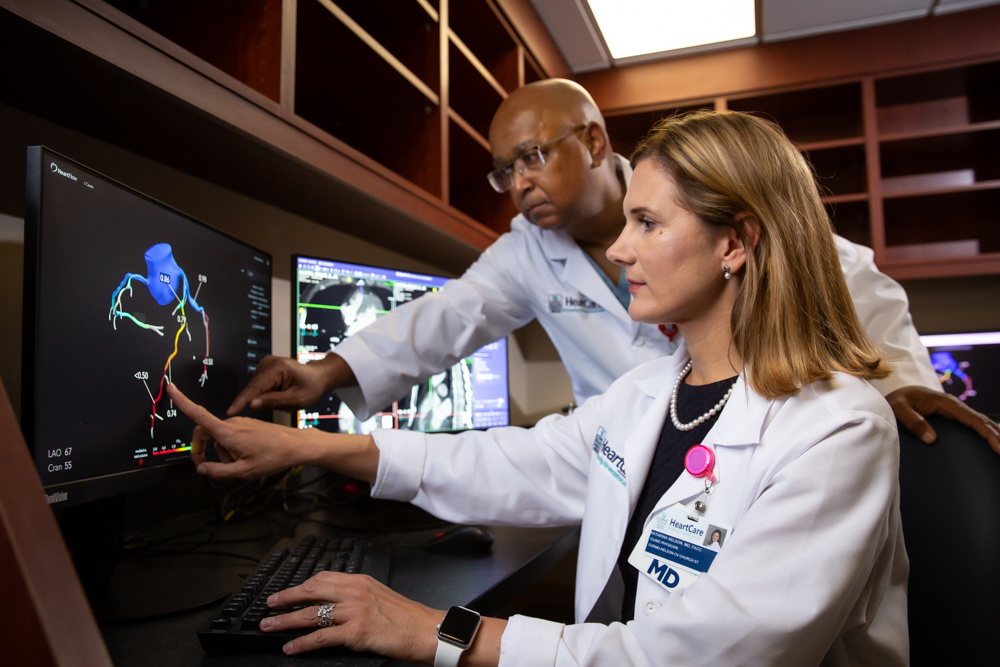
Using coronary computed tomography angiography (CCTA) with HeartFlow’s FFRCT Analysis to evaluate suspected coronary artery disease offers higher diagnostic accuracy, fewer unnecessary tests and higher




HeartFlow Analysis is consisted of four main functions; FFRCT, Planner, Roadmap, and Plaque. All four functions are cleared for clinical use in the United States, Bahrain, Israel, and United Arab Emirates. Only FFRCT and Planner functions are cleared cleared for clinical use in Europe, United Kingdom, Australia, Canada, and Japan. Please see HeartFlow Analysis Indications for Use and Instructions for Use for more information.
© 2024 HeartFlow, Inc. | HeartFlow and the HeartFlow logo are registered trademarks of HeartFlow, Inc. Additionally, RoadMap is claimed as a trademark of HeartFlow, Inc. www.heartflow.com | 331 E Evelyn Ave, Mountain View, CA 94041
*Required fields
If you would like to request to have the HeartFlow Analysis available at a location near you, please submit your information below with details of the institution. We will share this information with the institution, but it will not guarantee HeartFlow will become available.
*Required fields
オンライン提出フォームから研究助成金を申請してください。
HeartFlow FFRCT 分析は、有資格の臨床医による臨床的に安定した症状のある冠状動脈疾患患者への使用を目的とした個別化された心臓検査です。 HeartFlow Analysis によって提供される情報は、資格のある臨床医が患者の病歴、症状、その他の診断検査、および臨床医の専門的判断と組み合わせて使用することを目的としています。
ハートフロー分析に関する追加の適応情報については、次のサイトをご覧ください。www.heartflow.com/indications.
さらに質問がある場合は、このメッセージを閉じてフォームに記入するか、サポート チームにお電話ください。: 877.478.3569.
The HeartFlow FFRCT Analysis is a personalized cardiac test indicated for use in clinically stable symptomatic patients with coronary artery disease by qualified clinicians. The information provided by the HeartFlow Analysis is intended to be used by qualified clinicians in conjunction with the patient’s history, symptoms, and other diagnostic tests, as well as the clinician’s professional judgement.
For additional indication information about the HeartFlow Analysis, please visit www.heartflow.com/indications.
If you have additional questions, close out of this message to complete our form or call our support team: 877.478.3569.Please use our online submission form on the Clinical Research Page to apply for research grants.
Thank you for your interest!

Executive Vice President and Chief Medical Officer
Campbell brings a wealth of experience to HeartFlow, where he serves as the Chief Medical Officer. Prior to joining HeartFlow, he was the Chief Scientific Officer and Global Head of Research and Development at Cordis Corporation, Johnson & Johnson, where he was responsible for leading investments and research in cardiovascular devices. Prior to Cordis, he was Associate Professor of Medicine at Harvard Medical School and the Harvard-M.I.T. Division of Health Sciences and Technology, and Director of the Cardiac Catheterization and Experimental Cardiovascular Interventional Laboratories at Brigham and Women’s Hospital. He served as Principal Investigator for numerous interventional cardiology device, diagnostic, and pharmacology trials, is the author of numerous journal articles, chapters, and books in the area of coronary artery and other cardiovascular diseases, and was the recipient of research grant awards from the NIH and AHA.
He received his A.B. from Harvard College and his M.D. from Harvard Medical School.